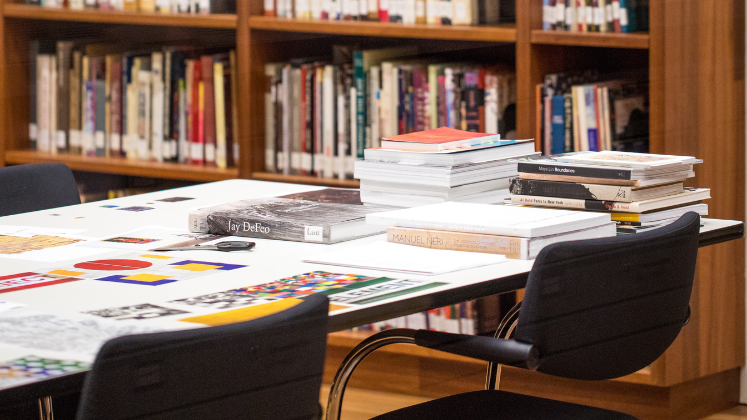
As debate continues over the benefits and risks of open access to the humanities and social sciences, one concern voiced above the rest is the disruption caused to the funding of scholarly societies in the UK. Adam Crymble wonders whether it might actually be time for scholarly societies to get more creative with their business models to fund associated activities, rather than relying on pricey, limited-access subscriptions that go well beyond the real costs of publishing.
Recently, at a one-day colloquium on Open Access I learned why academic publishing is so expensive, and I was disappointed to discover that resistance to open access from scholarly societies is not linked to the costs of publishing, but to the cost of non-publishing activities. The UK is in the midst of a heated debate about Open Access, following the Finch Report and an incoming policy that will require all research funded by the taxpayer to be published open access. For this to work, publishers are to be paid up front for lost revenue in what has been called the “Gold Model” of author pays for publication.
Nearly everyone agrees open access is a good thing, but how to pay for it is a matter of contention. The government’s policy works much better in the sciences where large research budgets are common and a few thousand quid for publication costs is a drop in the bucket. The Wellcome Trust’s representative Simon Chaplin argued at the colloquium that they’ve been funding this practice for years and thought it was a great use of money.
I don’t disagree with Chaplin, but few historians will ever see a grant the size of a typical Wellcome Trust award that can run hundreds of thousands or millions of pounds. Many historians operate entirely without funding, but those working in academic departments will have to find the money to publish in an open access format, else their work will not “count” towards the 2020 REF (the UK’s program of counting up who does good research, used to disseminate future research funding). The government’s proposal is also potentially disastrous for early career researchers who will find it difficult to secure funding to publish and who may have to choose between paying for food and “investing” in their career by paying for publications. Why would a department give a temporary employee (eg, Post Docs) access to funding for publishing that could go to permanent staff, when there’s a good chance that employee will be contributing to another university’s research outputs by the time the tallies are next taken?
While I did symapthize with many of the positions speakers took at the colloquium, it was the position of the scholarly societies in particular that I found most frustrating. Let me first say that I think scholarly societies are wonderful. In particular I think they have been instrumental at supporting promising early career researchers through funding, bursaries, prizes, fellowships, and opportunities to publish. I should also note that I have been employed by a scholarly society since 2008 and take pride in the work we do.
What I do not like is how many scholarly societies get their money, which became clear to me this past Friday. Jane Humphries, President of the Economic History Society, spoke on the business model of her society. According to Humphries, 1/3 of their income comes directly from the subscriptions raised by the society’s journal. These subscriptions are then used to fund the activities of the society rather than to pay the costs of publication alone. Humphries argues that without these subscriptions the society could not continue to function, which is a major push behind resistance to open access because most societies and publishers assume they will be forced to take what amounts to a paycut under the proposed models.
One of the activities of the Economic History Society is to fund 5 postdoctoral fellowships at a cost of £70,000. This fellowship scheme is a wonderful one and it’s something I’d be very sad to see discontinued. However, it is NOT a publishing cost. Instead, the subscriptions are increased well above the cost of publication in order to participate in non-publishing activities. That means libraries are being charged a surplus. And libraries get much of their money from the pockets of students paying tuition who are indirectly funding these postdoctoral fellowships without a say in the matter. While the scheme is entirely and undoubtedly good intentioned, the society is not working as hard as it could to reduce the costs of publishing because it has a vested interest to constantly increasing its income and expanding its activities. They are effectively robbing Peter to pay Paul. And I’m Peter.
The problem therefore is not that publishing is expensive. It’s not that open access is bad. It’s that publishing in its current model pays for other good things which will not be supported under the new model. But that does not mean these wonderful extra activities need to cease, or that open access will not work. It means we need to get behind scholarly societies to find a new way to fund these activities. So what can we do about the lost income? Well we might need to get creative, but here are two ideas.
Fundraising
I’ve yet to see any scholarly society attempt to fund a postdoctoral fellowship through crowdfunding on Kickstarter or a similar service. No one likes to pay taxes, but many people are willing to support a specific initiative. A £50 annual membership fee to a scholarly society feels much different than does a £50 donation that I know will go directly towards a fellowship.
Many societies also have natural connections to certain types of businesses, which could surely be approached for donations. In particular I’d imagine the Economic History Society, based near London’s financial core, and peopled by many a former London banker-turned-historian could make use of its personal network to solicit donations from their sector. Saying you don’t like to ask people for money is not an excuse, particularly if the alternative is to continue taking it from unwilling students. Wikipedia runs entirely on a fundraising drive and I’ve never thought ill of them for it. In fact, I gave them $50 last year to support their continued activities.
Advertising
Ads are entirely under-used in academia. The Old Bailey Online is one of the few academic projects I’ve seen that freely uses Google Ads to cover some of the project’s ongoing costs. There is absolutely nothing immoral about allowing someone to underwrite a society’s activities in exchange for some exposure. Even if it is only a partial solution, it’s one every society owes it to their communities to pursue.
Scholarly societies need to acknowledge that open access is not the problem. They need to be honest about what the REAL costs of publishing are, and they need to be open to ideas that can reduce those costs. Open access is good for nearly everyone. So let’s embrace it, and then let’s work together to find ways to continue to support the great activities of the scholarly societies. The future may not work the same as yesterday, but that doesn’t mean we can’t make it work.
This article was originally published on Adam Crymble’s personal blog, and is published here with permission.
Note: This article gives the views of the author, and not the position of the Impact of Social Science blog, nor of the London School of Economics.
Adam Crymble is a PhD student in history and digital humanities at King’s College London and the webmaster of the Network in Canadian History & Environment – a Canadian scholarly society. His opinions are his own.








1 Comments